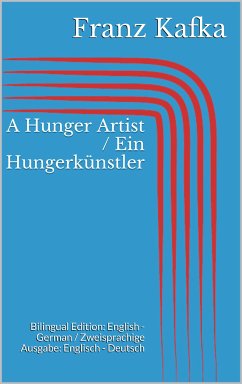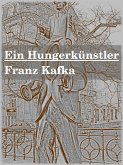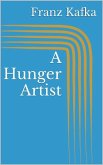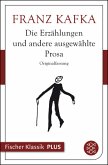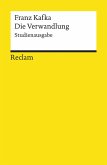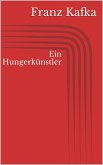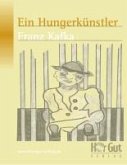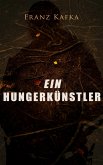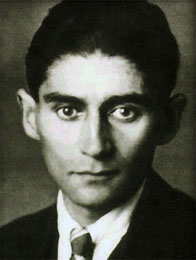This edition contains the English translation and the original text in German. "A Hunger Artist" ("Ein Hungerkünstler") is a short story by Franz Kafka first published in "Die neue Rundschau" in 1922. The story was also included in the collection "A Hunger Artist" ("Ein Hungerkünstler"), the last book Kafka prepared for publication, printed by "Verlag Die Schmiede" after Kafka's death. The protagonist, a hunger artist who experiences the decline in appreciation of his craft, is an archetypical creation of Kafka: an individual marginalized and victimized by society at large. The title of the story has been translated also to "A Fasting Artist" and "A Starvation Artist". "Ein Hungerkünstler" ist eine Erzählung von Franz Kafka, die erstmals 1922 in der Zeitung "Die neue Rundschau" erschien. Gleichzeitig ist es der Titel für den 1924 erschienenen Sammelband des Autors, der noch drei weitere Prosatexte enthielt. Drei der vier Erzählungen haben jeweils eine ironische Sicht auf das Künstlerleben zum Inhalt, wobei in zwei Fällen Zirkusfiguren gewählt wurden. Vor und nach der Jahrhundertwende war die Verwendung von Gauklern und Artisten, also Vertreter eher halbseidener Künste, in der Literatur sehr häufig. Siehe bei Frank Wedekind, Rainer Maria Rilke, Charles Baudelaire, Paul Verlaine. Es ist eine bittere Ironie der Kafka-Texte, dass Künstler und Zuschauer sich nicht verstehen können. Den Artisten treibt innerer Zwang; das Publikum will kurzfristige Unterhaltung. Auch die Maus Josefine aus Kafkas letzter Erzählung ist ihrem Publikum fern in ihrer Selbstvergessenheit.
Dieser Download kann aus rechtlichen Gründen nur mit Rechnungsadresse in A, B, BG, CY, CZ, D, DK, EW, E, FIN, F, GR, H, IRL, I, LT, L, LR, M, NL, PL, P, R, S, SLO, SK ausgeliefert werden.

